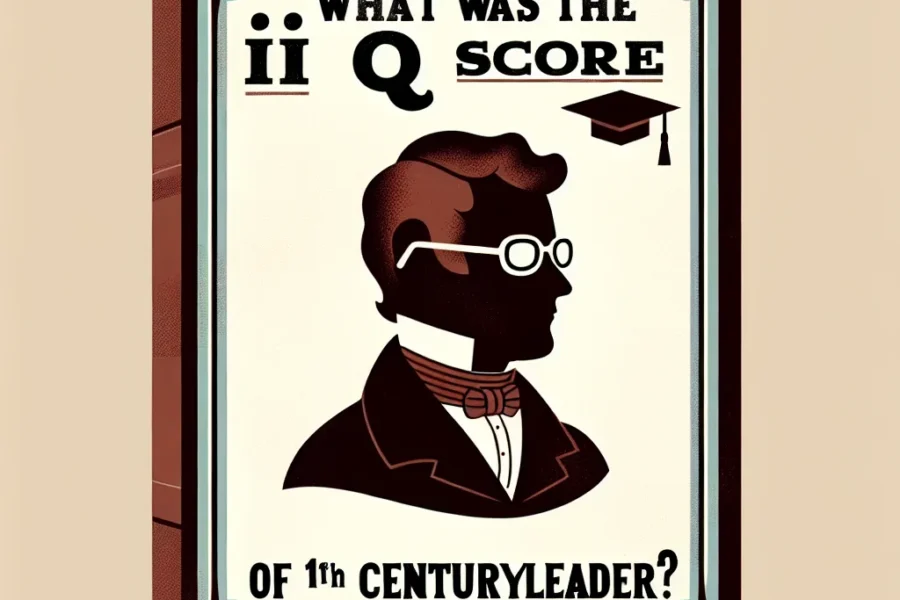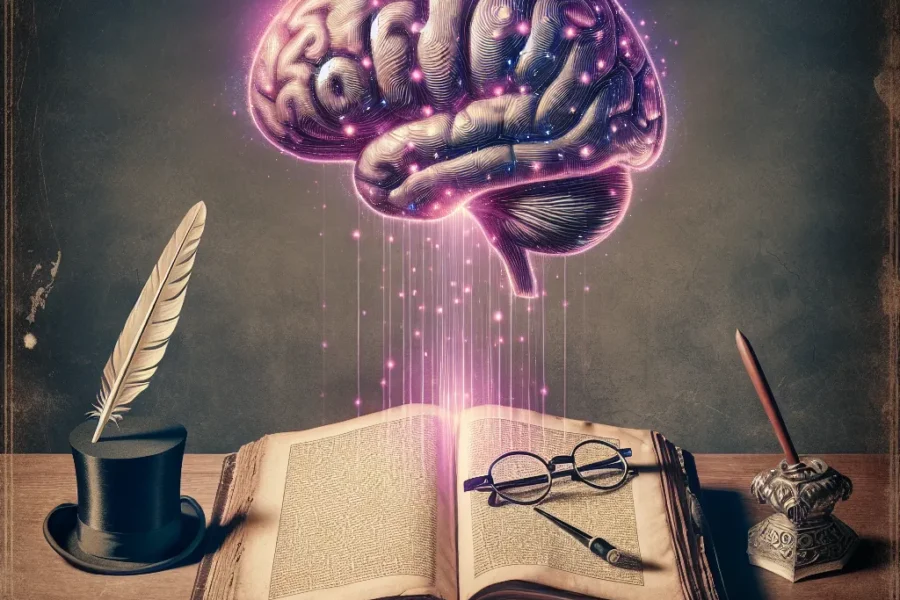James Buchanan, the 15th President of the United States, has been a subject of much analysis, critique, and study among historians. Born in Cove Gap, Pennsylvania, in 1791, Buchanan’s presidency is often marked by his inability to prevent the nation from descending into the Civil War. But among the popular queries about historical figures, one that frequently surfaces is: what was James Buchanan’s IQ score? To unravel this mystery and understand Buchanan’s intelligence and abilities, we need to consider both the available historical data and the ambiguity surrounding the concept of IQ scores in the 19th century.
If you are looking for legitimate IQ Tests which pass the entry bar for Mensa, see our IQ Tests.
IQ, or Intelligence Quotient, tests were not developed until the early 20th century when Alfred Binet created the first modern intelligence tests in France. As such, there are no contemporary readings or records of James Buchanan’s IQ score. However, many efforts have been made by historians and psychologists to estimate the IQ scores of historical figures posthumously. These estimations are usually based on their works, written records, and accomplishments.
Buchanan’s academic history sheds some light on his intellectual capabilities. He enrolled at Dickinson College in Carlisle, Pennsylvania, where he was almost expelled for bad behavior but graduated with honors in 1809. Following college, Buchanan studied law and was admitted to the bar in 1812, marking the beginning of a career that would eventually lead to his presidential office. His legal career, coupled with his service in various government roles such as Congressman, Minister to Russia, U.S. Senator, and Secretary of State, indicates a person of significant intellect and capability.
Despite his professional successes, Buchanan’s presidency is often viewed as a failure due to his inability to address the escalating tensions between the North and South. His passive stance on the issue of slavery and his belief in strict Constitutionalism are often cited as primary factors that contributed to the union’s fragmentation. Therefore, while Buchanan may have had the intellectual capacity, his decisions and political stance during one of the nation’s most critical periods raise questions about his judgment and foresight.
In an effort to quantify historical figures’ intelligence, Dean Simonton, a prominent psychologist, conducted extensive research and employed historiometric methods to estimate the IQ scores of U.S. Presidents. According to Simonton’s research, Buchanan’s estimated IQ is around 125. This score, while above average, does not place him among the higher echelons of presidential IQ scores. For context, Simonton estimated the IQ of Presidents like John Quincy Adams and Thomas Jefferson to be around 169 and 154 respectively.
It is important to note that IQ is not the sole determinant of an individual’s capability or success. A high IQ score does not necessarily equate to effective leadership skills, sound judgment, or emotional intelligence—all crucial attributes for a successful presidency. In Buchanan’s case, despite a relatively high estimated IQ, his presidency is often critiqued for the significant failure to unite the nation during its most divided times.
Buchanan’s personal traits and characteristics also offer insights into his intellect. Known for his meticulous nature, Buchanan was a disciplined attorney and a diligent public servant. He was reputed for his attention to detail and his thoroughness in legal and political matters. Furthermore, Buchanan had a wide circle of intellectual and political friends, including notable figures like Harriet Lane, his niece and constant confidante during his presidency. These relationships indicate a man deeply immersed in the intellectual and political discourse of his time.
Moreover, Buchanan’s extensive writings and speeches reflect a person with a strong command of language and an ability to articulate his thoughts clearly and convincingly. His diplomatic missions and negotiations, both domestically and abroad, also demonstrate his intellectual acumen and strategic thinking capabilities. However, his rigid adherence to certain principles and an apparent lack of adaptability or proactive decision-making are often seen as significant failings of his administration.
To understand Buchanan’s estimated IQ score in the broader context, it’s crucial to compare it to IQ estimations of his contemporaries and successors. Many of his peers, such as Abraham Lincoln and Andrew Johnson, were leaders during the tumultuous Civil War period. Lincoln’s estimated IQ of 140 demonstrates a balance of intellectual prowess and effective leadership. Johnson, who succeeded Lincoln and faced the arduous task of Reconstruction, had an estimated IQ of around 124. Thus, Buchanan’s estimated IQ is comparable to his immediate successors, but his effectiveness as a leader significantly contrasts with Lincoln’s revered legacy.
Though IQ estimations of historical figures provide a glimpse into their intellectual capacities, they must be interpreted with caution. These estimations are based on posthumous analyses and do not capture the full spectrum of a person’s intelligence, character, and decision-making abilities. Furthermore, historical contexts and the challenges faced by each individual play a critical role in shaping their legacy and effectiveness as leaders.
In conclusion, James Buchanan’s estimated IQ score of around 125 places him above average in terms of intellectual capacity. His achievements in law and politics, along with his extensive career as a public servant, indicate a person with considerable intellect. However, his presidency remains a profound example that intellectual capacity alone is insufficient for effective leadership. The challenges of his time, coupled with his decisions (or lack thereof), ultimately defined his legacy as one of the most controversial and criticized presidencies in U.S. history.



Leave a Comment